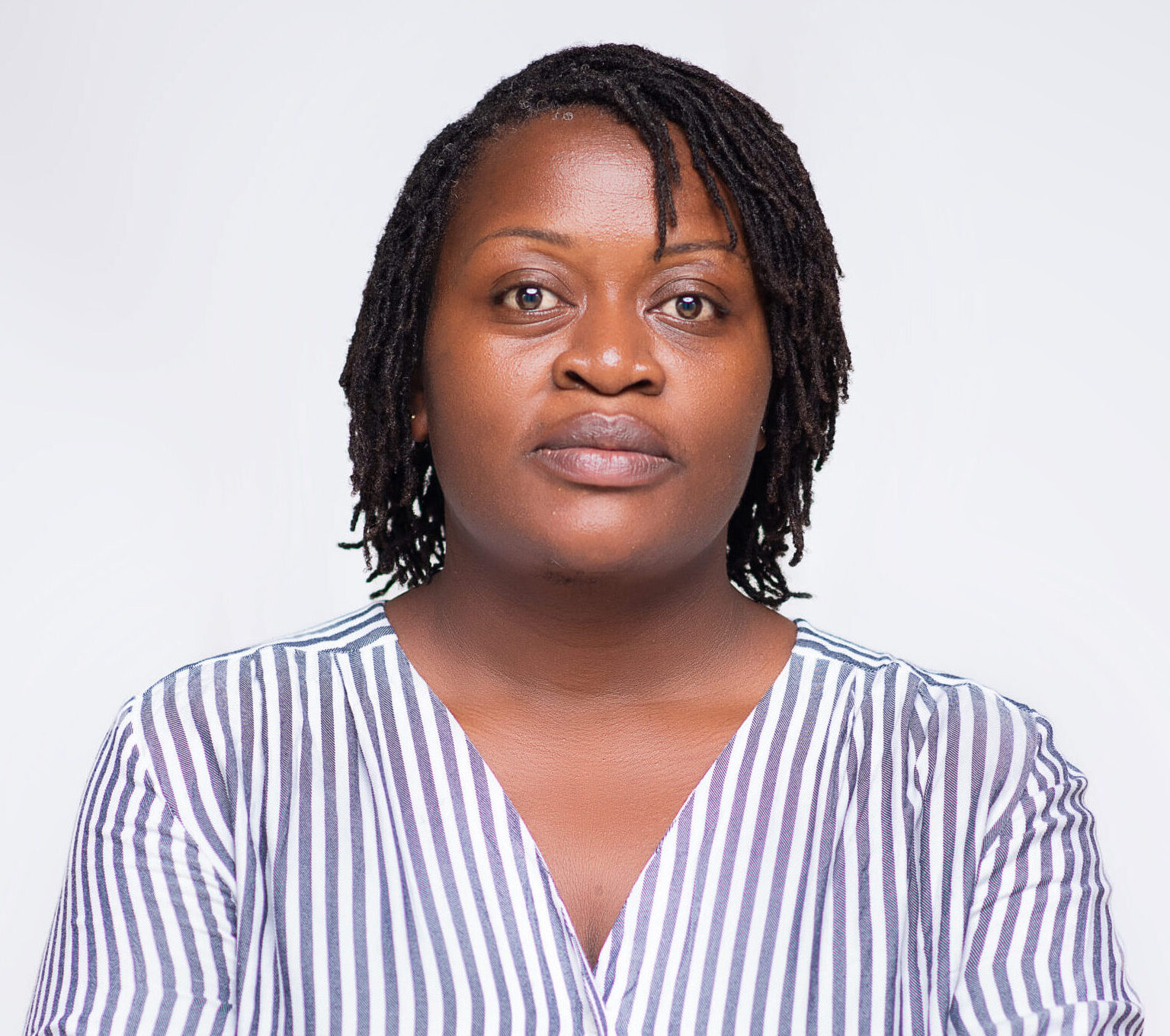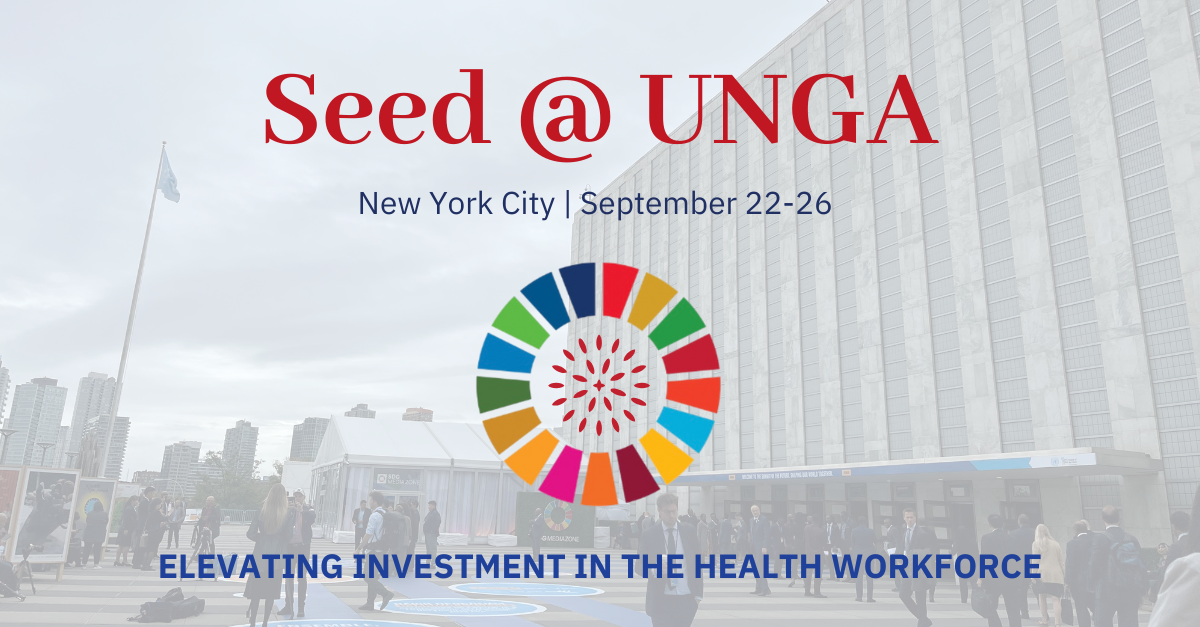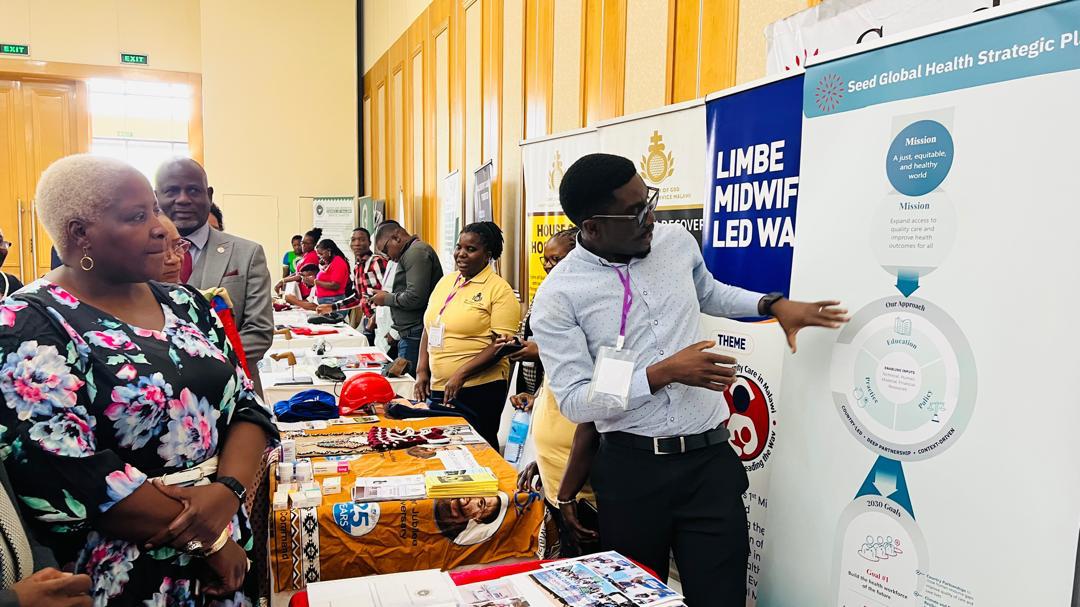
Malawi’s inaugural nursing and midwifery scientific conference attracts over 400 professionals
In November 2024, the National Organization of Nurses and Midwives in Malawi (NONM) hosted the country’s first-ever Nursing and Midwifery Scientific Conference. Themed “Strengthening the Nursing and Midwifery Workforce and Investment in Combating HIV/AIDS and Achieving Universal Health Coverage,” the conference spotlighted the indispensable role of nursing and midwifery in addressing the most pressing health challenges. Held at the Bingu International Convention Centre in Lilongwe, the event attracted 400 nurses and midwives from across Malawi, alongside delegates from neighboring Zambia.
Key highlights
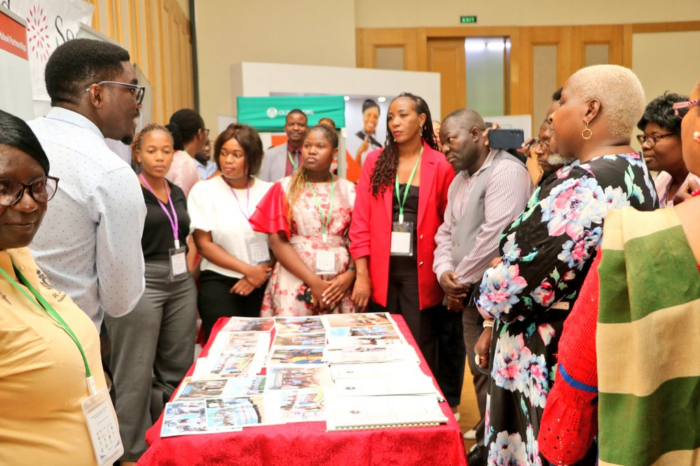
As a key partner of the Ministry of Health, Seed Global Health (Seed) showcased our work in collaboration with different partners at the conference. The Seed exhibition booth featured work from several of our partners, including the Department of Family Medicine at Kamuzu University of Health Sciences (KUHeS), reflecting our commitment to supporting high-quality medical and nursing education. Minister of Health Khumbize Kandodo Chiponda visited the booth and acknowledged Seed’s contributions to health care service delivery in Malawi.
The minister praised Seed activities such as training healthcare professionals, which has led to improvement in maternal and new-born health services. The collaborative work between Seed and health facilities like Limbe Health Centre was spotlighted, with the Minister commending the center for its excellence in infection prevention and control measures. She said more facilities ought to learn from Limbe’s model to improve healthcare outcomes nationwide.
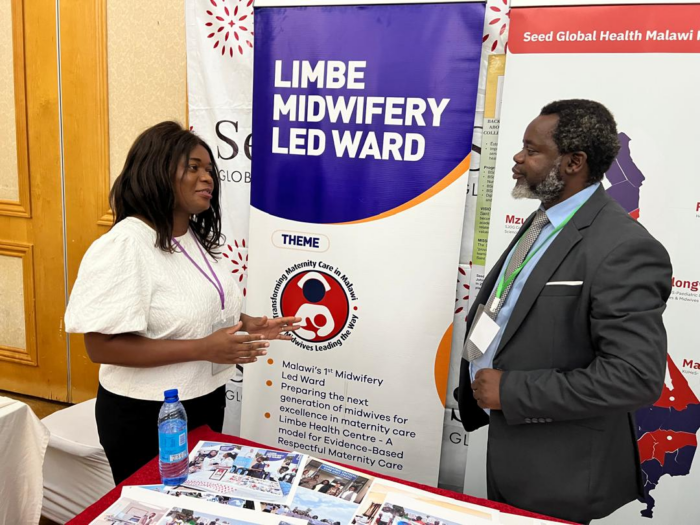
In her key address at the conference, Minister Chiponda, highlighted the great significance of the event and what it symbolized for the health workforce.
She also emphasized the need for strategic investments in the nursing and midwifery workforce, in recognition of the cadres’ critical contributions to advancing national and global health objectives.
Participants listened to several presentations that enriched the scientific discourse at the conference. A Seed midwifery advisor delivered a presentation that delved into findings from a study on psychosocial experiences among mothers with pre-term infants admitted to the neonatal intensive care unit at Mzuzu Central Hospital.
Other presentations featured experiences from a quality improvement project the midwifery partnership team embarked on to enhance access to basic obstetric ultrasound scans among pregnant women attending antenatal care in the first trimester at Limbe Health Centre.
Conclusion
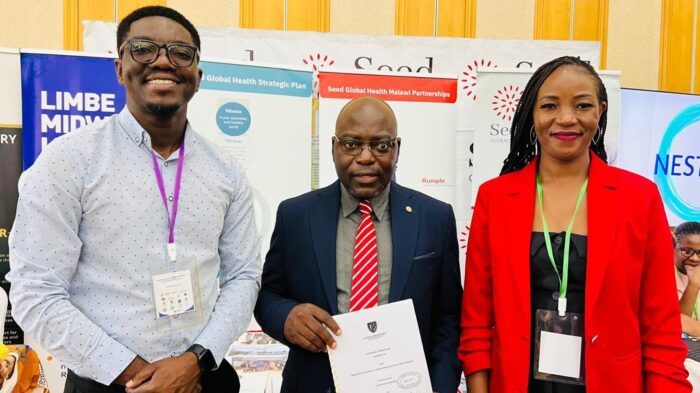
The inaugural Nursing and Midwifery Scientific Conference marked a significant step forward in advancing the health workforce in Malawi. By providing a platform for knowledge exchange and showcasing best practices, the event underscored the critical role of nurses and midwives in combating HIV and achieving universal health coverage. The conference not only celebrated these frontline professionals but also served as a rallying call for stronger health systems and bold, transformative action.
Seed’s participation at this event combined with the commitment to supporting health worker skilling across Malawi, reflects a shared dedication to strengthening the health system for the benefit of the population. This milestone sets the stage for continued collaboration, innovation, and progress in the health sector.
